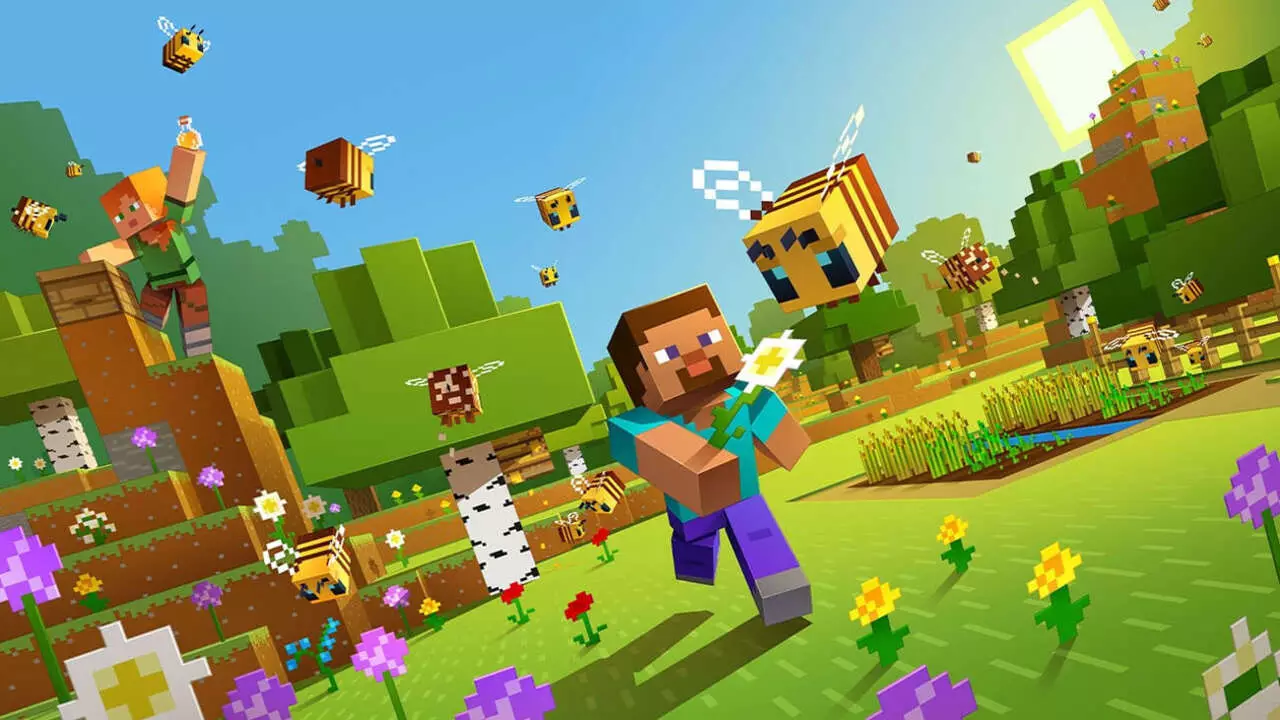In an extraordinary intersection of gaming and animal intelligence, the world of Minecraft has found unexpected players: bonobos. These remarkable primates, renowned for their cognitive abilities, have taken to the pixelated landscape of Minecraft in an initiative that not only entertains but also educates. The Ape Cognition & Conservation Initiative (ACCI) in Iowa has pioneered this unique venture, unveiling a profound connection between species that challenges our understanding of intelligence across the animal kingdom.
Bonobos, closely related to humans, have long captured the interest of researchers due to their sophisticated communication skills and social behaviors. The ACCI, committed to exploring the remarkable capabilities of these endangered apes, has provided a platform that merges technology with animal cognition. As game enthusiasts celebrate the ongoing success of Minecraft, two specific bonobos – Kanzi and Teko – have made significant strides in mastering this digital universe. Their journey reveals not only the potential of inter-species learning but also the broader implications for animal consciousness.
A Learning Experience That Goes Beyond Gaming
Using a touchscreen interface, Kanzi and Teko have demonstrated their ability to grasp complex concepts through gameplay. This learning experience is particularly fascinating when viewed through the lens of modern behavioral science. For instance, Kanzi’s interactions with Minecraft involved a reward system, whereby successful mining efforts led to treats – a clever strategy that has proven effective in promoting engagement. Such methods signify an innovative approach to understanding how non-human intelligences can engage with technology, moving beyond mere mimicry to a form of collaborative interaction with human-designed environments.
The study of Kanzi’s gameplay not only reflects the capabilities of bonobos but also ignites discussions about the ethical implications of their learning methods. The loss of Kanzi, who passed away at the age of 44 earlier this year, resonates deeply with the research community. Kanzi was not just a subject; he was a bridge between species, known for his extensive understanding of English and his charismatic personality. His legacy raises important questions about the future of cognitive research on primates, especially in the face of dwindling funding and resources.
The Threatened Future of Primate Research
As ACCI faces potential government funding cuts, the future of such groundbreaking studies hangs in the balance. Director Jared Taglialatela’s insights about expanding our understanding of the species closest to us highlight the urgent need for continued support of cognitive research. The interaction of Kanzi and Teko with Minecraft does more than entertain: it signals a golden opportunity to expand our comprehension of intelligence across species boundaries. Protecting such initiatives can unlock secrets about communication, empathy, and perhaps even consciousness itself.
While Minecraft serves as a digital playground for these intelligent bonobos, it also shines a spotlight on the delicate balance between conservation efforts and funding realities. The remarkable journey of these apes through virtual landscapes resonates with wider themes of understanding, connection, and the responsibility we hold for our closest evolutionary relatives. The strides made by Kanzi and Teko remind us that the exploration of intelligence is a profound endeavor that transcends the human experience, ushering in a new era of interdisciplinary research that is crucial for both animal welfare and cognitive science.

